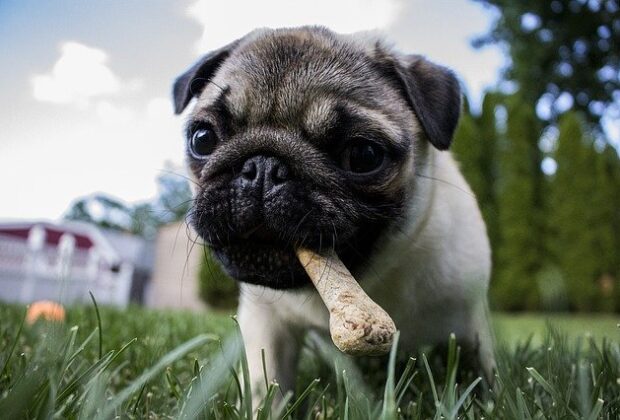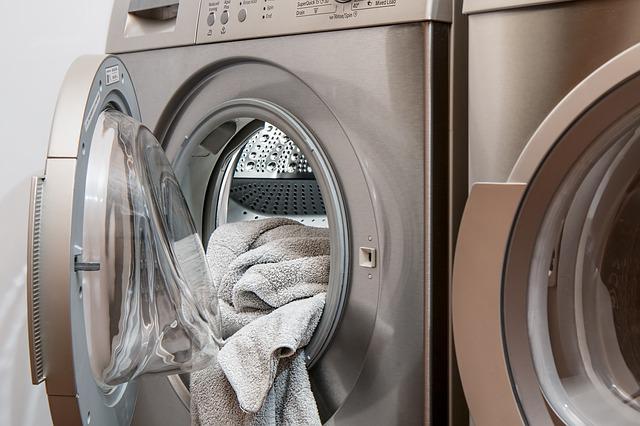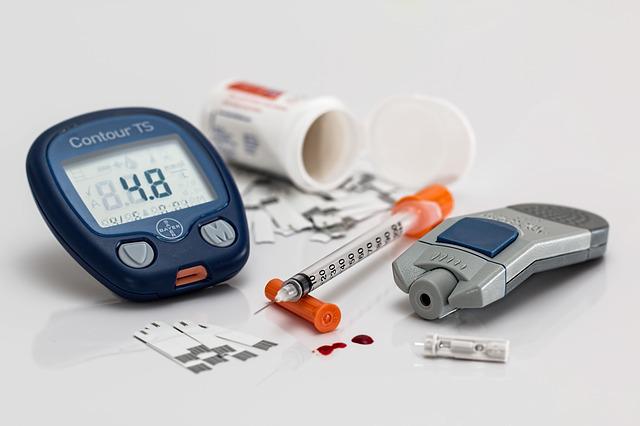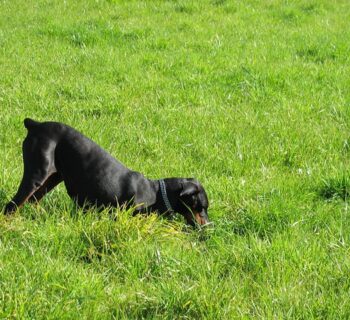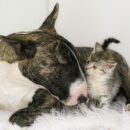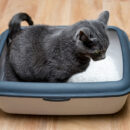Are you a first-time puppy owner? If yes, you might have many questions about the kind of food your pup should and shouldn't eat. Walking into a pet supply store won't help much because you will find many options of dog foods in different flavors and varieties. Pups need different types of foods at different stages in their lives to grow stronger and bigger. Their nutritional needs keep changing frequently. If you have been wondering what to feed your 6-week-old pup, then you have come to the right place. Keep reading to know more about the foods you can give your puppy at this stage.
Table of Contents
Puppy Diet at Six Weeks
At 6 weeks, your pup is almost like a newborn baby, so you need to feed him a puppy diet only. You can find many dog foods specifically for 6 to 12-week-old pups in pet stores. Buy these foods only for your 6-week-old canine and not for a dog at any other life stage. You can give this food about four times a day, in quantity mentioned in the package. This amount is enough to meet the nutritional requirements of your pup.
One word of warning. Never make the mistake of feeding adult dog foods to your pup. Foods meant for adult dog foods don't have all the nutrients necessary for the growth and overall wellbeing of a 6-week-old puppy.
Puppy Diet and Breed
Above, we told you that you could start giving your 6-week old pups foods that are meant for 6 to 12-week-old dogs. However, please note that you have to choose the food based on your pup's breed. Large, medium, and small breeds of dogs have different sets of teeth and nutritional requirements. For example, the chunk sizes in foods are bigger for large breeds of dogs, whereas chunks are a lot smaller in foods meant for small breeds of pups.
Also, small breeds of pups require more fat, calcium, and protein than bigger breeds. If you are really stuck deciding what food to buy, it might be better to talk with your veterinarian and choose foods based on their recommendation.
Has Your Pup Weaned at Six Weeks?
As a first-time pup owner, you may wonder if your pup has weaned off its mother's milk at 6 weeks. The truth is that most puppies are ready for solid food at this stage. They have well-developed, sharp teeth, so the mother stops feeding her pups at this stage. You can give moistened pup foods with a small amount of water and start feeding them slowly.
What Liquids Can You Give a 6-Week-Old Pup?
The primary source of hydration for newborn puppies is their mother's milk. Until they are around 5 or 6 weeks old, they continue to depend on their mother for hydration. However, once they are weaned at 6 weeks, they will need water to keep themselves hydrated. According to experts, a puppy of 6 weeks will need about 1.5 cups of water every 2 hours, at least. Make sure you leave a bowl of clean water near your pup at all times.
Many people wonder if they can give milk to puppies at 6 weeks. You can, but not cow's milk! Puppies cannot digest cow's milk properly, and when you give them dry food mixed with even a little bit of cow's milk, it can cause diarrhea and indigestion issues in pups. If you want to combine your pup's food with a soft liquid, you can choose warm goat's milk. If goat milk is unavailable, you can buy dog milk supplements from pet stores. Young puppies can handle this well. You will find many canine milk replacement formula brands in the stores today.
Dry Foods and Puppies
At 6 weeks, your pup is too small to digest dry food directly. The pieces in the food can get stuck in its throat, causing it to choke and creating digestion issues. Usually, dry food can be given to large breeds of puppies only when they are about 9 or 10 weeks old. For small breeds of pups, it will take longer. You can give dry food to small dogs only at 12 or 13 weeks. By this time, their internal system would have adequately developed to take in the dry pieces that have not been softened by milk or water.
Treats for 6-Week Old Pups
Sometimes, pups are given treat-based training to develop their overall skills. In that case, you should plan your pup's diet accordingly. We already told you that you could feed a 6-week-old puppy 4 times a day. However, you can relax this rule a bit on the days when you are giving it some treats. When your pup has some treats, it might want to eat only thrice a day. That's quite normal.
- Lactose-free milk and vegan milk types (coconut, cashew, soy, almond, and more) can be given as treats, but only in minimal quantities.
- You can give your pup dairy products like cheese, butter, ice cream, and other fats, but very sparingly. When provided in excess, these can cause indigestion in pups.
Regardless of your dog's breed, please consult with the veterinarian about the foods, treats, and liquids that you can give your pup, before trying anything. For example, some treats are not suitable for diabetic dogs, so you want to ensure you do not buy those products.
Overfeeding Is a Strict No-No!
Are you thrilled when you see your pup lick its bowl clean during every feed? Are you tempted to give it more than the required dosage per time because you think it is hungry? Never make this mistake because over-feeding a pup can lead to many problems. At 6 to 12 weeks, the puppy diet sold in the stores is designed to meet the exact nutritional requirements of your 6-week-old pup, for every feed. Feeding more than the dosage mentioned in the package can lead to your dog over-consuming proteins, fats, calcium, and other nutrients. This can affect its overall health and immunity.
Bottom Line
Puppy food meant for 6-week pups and a reasonable quantity of fresh water is all your 6—week old pup needs daily to stay healthy and strong. While you have to follow the instructions precisely as per the puppy food package, it is also a great idea to ask your veterinarian for some tips on feeding your pup. This will prepare you better to take care of your pup in the best possible way.
About the Author
Kirsten Heggarty
Kirsten created The Pet Handbook with the aim of sharing her knowledge about pets, pet food, healthy habits, and more. All of her advice is based on years of her own experience with her pets, and feedback that she has received from grateful readers about her tips. If you want to know more please read the About Me page.

